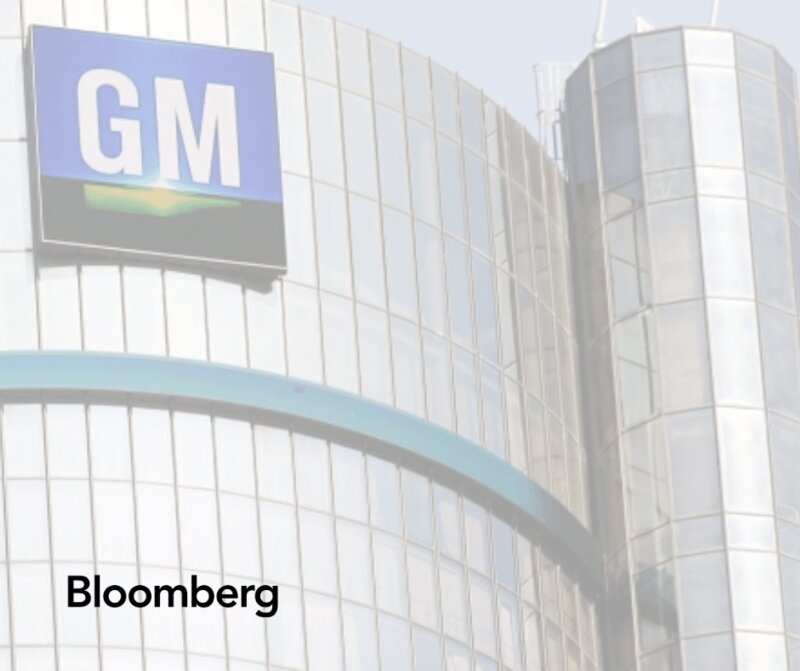
July 15, 2020
Alex Calderone speaks with Bloomberg regarding GM racketeering suit against FCA
GM Suffers Blow in Bid to Punish Fiat Chrysler Over Union Bribes July 8, 2020, 6:31 PM General Motors Co.’s efforts to take a rival to task for allegedly inflating its labor costs suff
GM Suffers Blow in Bid to Punish Fiat Chrysler Over Union Bribes
General Motors Co.’s efforts to take a rival to task for allegedly inflating its labor costs suffered a major blow with the dismissal of its racketeering lawsuit against Fiat Chrysler Automobiles NV.
General Motors failed to show that it was directly harmed by bribes Fiat Chrysler paid to union officials over more than a decade, a federal judge in Detroit ruled on Wednesday. GM claimed Fiat Chrysler got better labor contracts than competing automakers by paying off the United Auto Workers in a scheme that raised GM’s expenses by billions of dollars.
U.S. District Judge Paul Borman said GM wouldn’t have enjoyed the competitive advantages it cited regardless of Fiat Chrysler’s acts, which have landed nine former officials from the automaker and union in jail as part of a federal corruption probe.
“GM’s labor costs were not any higher than they would have been absent FCA’s bribes, FCA’s labor costs were just lower than they would have been,” Borman wrote in a 30-page decision. “In other words, FCA’s UAW workers were the direct victims of the bribes because they were paid less, and GM only suffered an indirect competitive harm.”
Mary Barra
Borman’s decision is likely headed for a higher court. It comes after a high-profile standoff in which the judge ordered GM Chief Executive Officer Mary Barra and Fiat Chrysler CEO Mike Manley to meet face to face to resolve the dispute, which he called a “waste of time and resources” during the coronavirus pandemic. The meeting was put on hold by an appellate panel, which rejected GM’s request to have the case assigned to another judge.
Read More: A $1 Billion Grudge Drove GM’s Shock Suit Against Fiat Chrysler
GM said in a statement that it disagreed with Borman’s dismissal and would pursue legal remedies.
“There is more than enough evidence from the guilty pleas of former FCA executives to conclude that the company engaged in racketeering, our complaint was timely and showed in detail how their multi-million dollar bribes caused direct harm to GM,” it said. Referring to the Racketeer Influenced and Corrupt Organizations Act, GM said the court’s opinion “is contrary to well-settled RICO case law and would let wrong-doers off the hook for the massive harm caused by their criminal conspiracy.”
Mike Manley
Fiat Chrysler said in a statement that it had “said from the very outset that this was a meritless lawsuit.”
Alex Calderone, managing director at the financial advisory firm and litigation consultant Calderone Advisory Group, said the decision wasn’t unexpected.
“I had suspected all along that this was a principled argument, and it’s not surprising to me that the case was dismissed,” he said. “The burden of proof GM was facing was set particularly high, and the court recognized that.”
Calderone said the legal issue was causation, and “if you don’t have causation, the case falls apart.” If GM has accomplished anything with the legal battle, he said, it’s that “they feel as if they’ve taken a stand on the alleged wrongdoings of FCA.”
Read More: GM, Fiat CEOs Ordered to Meet to Resolve Bribery Suit
The RICO case was proven by federal prosecutors. What was tougher for GM was convincing the judge that the company should have been guaranteed a labor deal equal to its rival’s. Fiat Chrysler did get a better deal over the past decade, but there is no law that says all companies in an industry have a right to the same contract.
The competitive advantages GM says Fiat Chrysler secured from the UAW include a higher portion of workers paid lower entry-level wages, a streamlined grievance process and looser limits on the use of temporary employees. As of 2015, 42% of Fiat Chrysler’s union members were earning second-tier pay, compared with about 20% for GM.
The UAW has long said it would engage in pattern bargaining, making wages and benefits basically the same for Detroit’s three carmakers. But there have always been differences in key points like bonuses paid, job security and plant closings and investment. In the 2019 labor contract, GM closed more plants — four in the U.S. — and currently has more employees in low-wage Mexico than Ford Motor Co. or Fiat Chrysler.
The case is General Motors LLC v. FCA US LLC, 19-cv-13429, U.S. District Court, Eastern District of Michigan (Detroit).
To contact the reporters on this story:
Chris Dolmetsch in Federal Court in Manhattan at cdolmetsch@bloomberg.net;
David Welch in Southfield at dwelch12@bloomberg.net;
Gabrielle Coppola in Detroit at gcoppola@bloomberg.net
To contact the editors responsible for this story:
David Glovin at dglovin@bloomberg.net
Peter Jeffrey, Craig Trudell
Share This Story, Choose Your Platform!
Marx Layne is your competitive advantage.
Your reputation and success are our only concerns.

